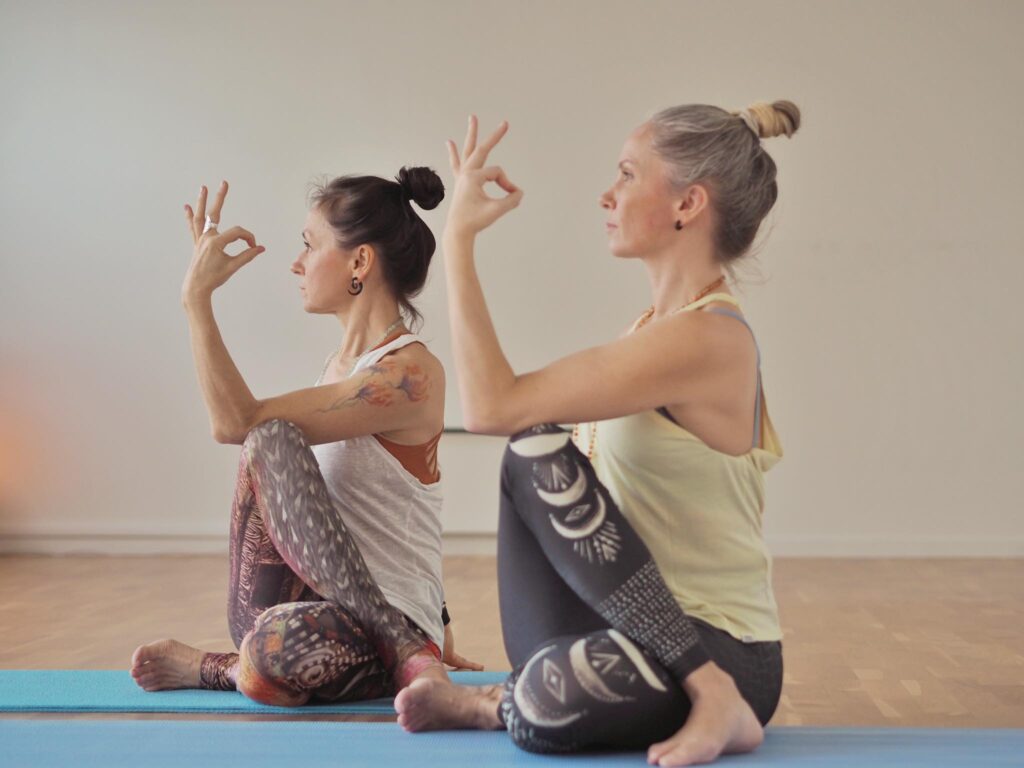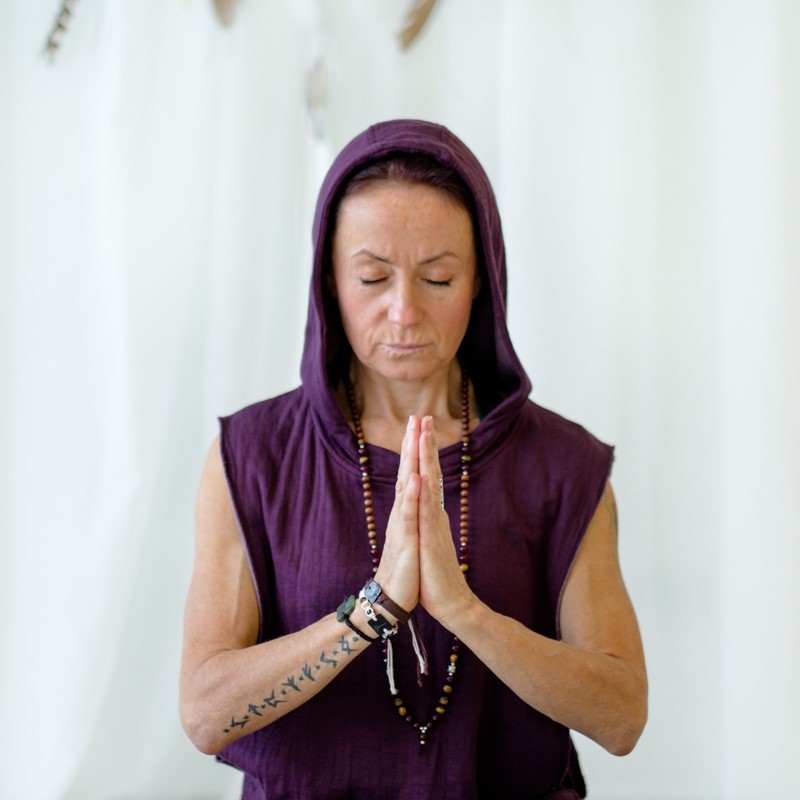
What is YOGA: Exploring the ancient practice of Mind, Body and Spirit
Introduction
Yoga is an ancient practice that encompasses physical, mental, and spiritual disciplines aimed at achieving balance and harmony in life. It has deep roots in Indian philosophy and has evolved over thousands of years into a comprehensive system of well-being and self-realization. In today's fast-paced world, yoga has gained popularity as a means to relieve stress, improve physical health, and attain inner peace. This article aims to explore the multifaceted nature of yoga, delving into its history, principles, benefits, and modern-day relevance.



Historical Origins of Yoga
The word "yoga" is derived from the Sanskrit root "yuj," which means to yoke or unite. Its ancient origins can be traced back to the Indus Valley civilization, where archaeological evidence suggests the practice of yoga dates back over 5,000 years. However, it was the ancient Indian sage Patanjali who systematized the practice of yoga in his "Yoga Sutras," providing a philosophical framework for understanding the mind and achieving self-realization.
Patanjali's classical eight-limbed path of yoga, known as "Ashtanga Yoga," outlines a comprehensive system for personal development. It includes ethical principles (yamas and niyamas), physical postures (asanas), breath control (pranayama), sensory withdrawal (pratyahara), concentration (dharana), meditation (dhyana), and ultimately, spiritual absorption (samadhi). This holistic approach to yoga emphasizes the interconnectedness of body, mind, and spirit.
The Principles of Yoga
At its core, yoga is founded on a set of principles that guide practitioners toward holistic well-being. The practice of yoga seeks to cultivate self-awareness, compassion, and harmony within oneself and with the world. The principles of yoga are deeply rooted in ancient wisdom and have enduring relevance in modern society.
One of the fundamental principles of yoga is Ahimsa, or non-violence. This principle encourages practitioners to embody kindness and compassion toward oneself and others, fostering a sense of interconnectedness and harmony. Similarly, Satya, or truthfulness, advocates for practicing honesty and authenticity in thoughts, words, and actions. These principles, along with others such as Asteya (non-stealing), Brahmacharya (moderation), and Aparigraha (non-attachment), form the ethical foundation of yoga practice.
The Physical Aspects of Yoga
In the West, yoga is often associated with physical postures or asanas, which have gained immense popularity as a form of exercise and stress relief. These postures are designed to stretch, strengthen, and balance the body, promoting flexibility, muscular endurance, and overall physical well-being. From gentle restorative poses to dynamic and challenging sequences, yoga offers a wide range of practices suitable for individuals of all ages and abilities.
The practice of yoga postures is not merely about physical exercise; it is also a means of cultivating mindfulness and presence. By focusing on the breath and bodily sensations during asana practice, practitioners can develop a heightened sense of body awareness and mental clarity. This integration of movement and mindfulness sets yoga apart as a holistic discipline that nurtures the body-mind connection.
Breath Work and Meditation
In addition to physical postures, breath work, or pranayama, is an integral component of the yoga practice. Pranayama techniques involve conscious control of the breath to regulate energy flow, calm the mind, and enhance vitality. Deep, intentional breathing can induce relaxation, reduce stress, and promote mental clarity, making pranayama a valuable tool for achieving balance and emotional well-being.

Meditation, the practice of focusing the mind and cultivating inner awareness, is another cornerstone of classical yoga. Through meditation, practitioners can gain insight into the workings of the mind, cultivate emotional resilience, and experience moments of profound stillness and tranquility. Numerous studies have highlighted the psychological benefits of meditation, showing its capacity to reduce anxiety, improve attention, and foster a sense of inner peace.
Yoga Beyond the Mat: Mindfulness and Daily Life
While the physical and mental benefits of yoga are often associated with the practice of postures, breathwork, and meditation, the essence of yoga extends far beyond the confines of a yoga mat. Yoga encourages practitioners to embody mindfulness in their daily lives, cultivating present-moment awareness, resilience, and compassion.
The practice of mindfulness, a central tenet of yoga, involves paying attention to the present moment with openness and curiosity. By integrating mindfulness into everyday activities, individuals can reduce stress, enhance focus, and savor life's experiences more fully. Simple practices such as mindful breathing, conscious eating, and gratitude journaling exemplify how yoga can be integrated into daily routines to foster well-being and emotional balance.
Yoga as a Spiritual Path
In its traditional context, yoga is not merely a set of physical exercises or relaxation techniques; it is a spiritual path aimed at self-realization and transcendence. The ultimate goal of yoga is to unveil the innermost nature of the self, transcending the limitations of the ego and realizing one's interconnectedness with the universe.
Spirituality in yoga is often expressed through devotion (bhakti), knowledge (jnana), and selfless action (karma). These paths provide different avenues for spiritual growth, allowing individuals to connect with the divine, seek wisdom, and serve others with love and compassion.
Yoga and Modern Science
In recent decades, the practice of yoga has garnered increasing interest from the scientific community, leading to numerous studies exploring its effects on physical and mental health. Research has demonstrated that yoga can have profound physiological and psychological benefits, including reduced stress, improved cardiovascular health, enhanced cognitive function, and alleviation of chronic pain.
Moreover, the integration of yoga with modern therapeutic approaches has given rise to practices such as yoga therapy, which applies yogic principles and techniques to support individuals in managing various health conditions. From depression and anxiety to chronic pain and post-traumatic stress disorder, yoga therapy has shown promise in promoting holistic well-being and addressing complex health challenges.
Yoga in the Modern World
As the pace of modern life accelerates and the prevalence of stress-related health issues rises, the appeal of yoga as a holistic practice for well-being continues to grow. Yoga has transcended cultural and geographical boundaries, becoming a global phenomenon that offers a pathway to physical, mental, and emotional balance.
In addition to traditional yoga studios and retreat centers, yoga is increasingly integrated into diverse settings, including schools, workplaces, hospitals, and community organizations. This trend reflects a growing recognition of the multifaceted benefits of yoga and its capacity to promote resilience, reduce burnout, and foster a culture of well-being in various spheres of life.
Moreover, the accessibility of online yoga platforms and virtual classes has further expanded the reach of yoga, enabling individuals to engage in practice from the comfort of their homes. This democratization of yoga instruction has made the practice more inclusive and adaptable to diverse lifestyles and needs, reflecting its enduring relevance in a rapidly evolving world.
Conclusion
In conclusion, yoga is a profound and multifaceted practice that encompasses physical, mental, and spiritual dimensions. Rooted in ancient wisdom and philosophy, yoga offers a holistic path to well-being, self-awareness, and inner transformation. Its principles, including mindfulness, ethical conduct, breath work, and meditation, provide a blueprint for living with greater harmony and compassion.
As yoga continues to evolve and adapt to modern contexts, its impact on individual and collective well-being becomes increasingly salient. From enhancing physical health and mental resilience to fostering a deeper sense of connection and purpose, the practice of yoga holds enduring relevance in our quest for holistic well-being and self-realization. Whether on the mat, in daily life, or the depth of spiritual inquiry, yoga offers a transformative journey toward balance, wholeness, and inner peace.
Here is the YouTube video if you want to try my 10-minute Grounding yoga at your home.
